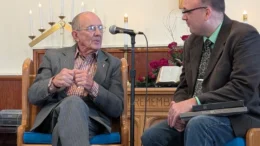The Cranberry Township supervisors want to spur a local economic development agency to help in getting a 10-acre site, one tapped as a potential industrial park, ready for development.
“I would like to see something at our industrial site,” said Jerry Brosius, township supervisor, at a supervisors meeting Thursday.
The acreage, which has access to public sewage and water service, is along Airport Road in Cranberry Township. Owners of the separate parcels that once constituted the airport include private individuals, small companies and the Oil Region Alliance.
At a Cranberry Township economic development committee meeting last year, Phillips said that an effort to sell part of the land was thwarted a few years ago because of a buried main electric line splitting the parcel. Putting that parcel together with adjacent properties would be an enticement to attract industrial development.
That project, though, has not moved forward because of the buried utility line. Phillips said that obstacle would be expensive because the line would have to be relocated.
Brosius noted the construction and eventual operation of the Shell cracker plant in Beaver County could prompt plastics-related and other industries to locate in this region. He said the township industrial park could take advantage of business expansions.
“But, something has to get done,” he said.
Chad Findlay, township manager, said the township is “waiting for the Oil Region Alliance” to take some type of action as to the buried utility line.
“We need to know exactly where it is and the cost to move it,” said Matt McSparren, a member of the township economic development committee. “It is up to the Oil Region Alliance.”
Findlay added, “We are waiting for them.”
In deciding to press the Oil Region Alliance to determine how to deal with the utility line, one that would impede any industrial development on the site, the township supervisors said they would again ask the agency to move forward on their request.
‘We are very lucky’
Township resident Andy Sentgeorge asked the supervisors if the Seneca Volunteer Fire Department was facing the same problems – insufficient funding, lack of manpower – that other area firefighter units were.
Findlay said fire department membership was staying steady but “the department may be hurting for more active help.”
“Across the board, volunteer fire departments are in trouble across the country,” said Harold Best, chairman of the supervisors. “People don’t want to get involved. … But, yes, we are very lucky.”
Fred Buckholtz, supervisor, said the department enjoys good public support.
“We are very fortunate with who we have. … We have an annual fund drive and they support the fire department pretty good,” he said.








































